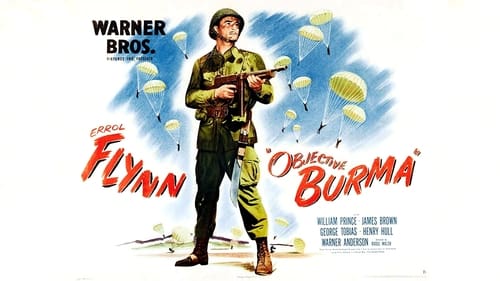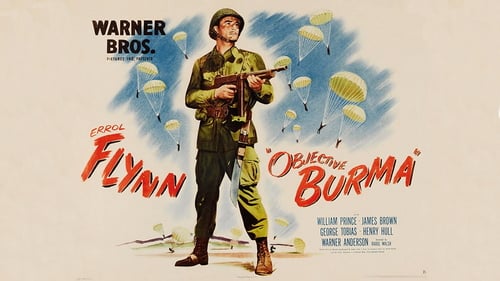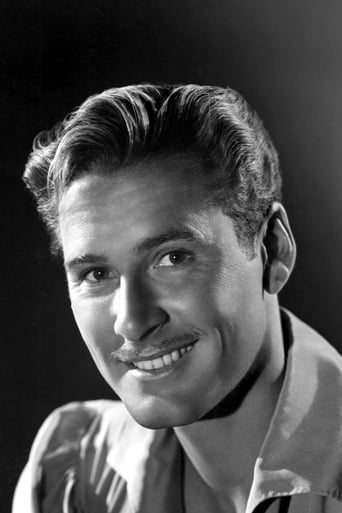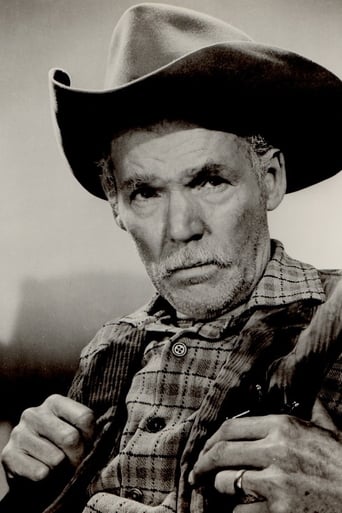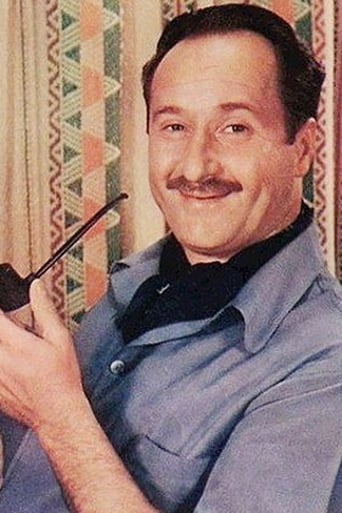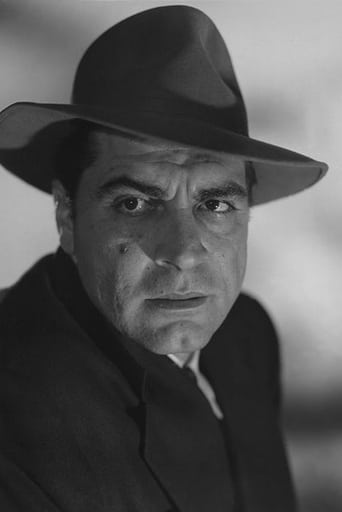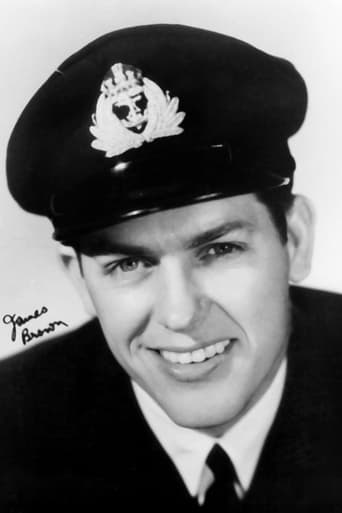Interesteg
What makes it different from others?
Matrixiole
Simple and well acted, it has tension enough to knot the stomach.
Plustown
A lot of perfectly good film show their cards early, establish a unique premise and let the audience explore a topic at a leisurely pace, without much in terms of surprise. this film is not one of those films.
Hattie
I didn’t really have many expectations going into the movie (good or bad), but I actually really enjoyed it. I really liked the characters and the banter between them.
RichyMack
Although total fiction, which most war movies are, It's a shame this movie was banned in England because it didn't show any Brits in action. To them this movie was historically incorrect. Yes, we know the Brits were present in large numbers fighting in Burma and not so much the Yanks. So when an all American company was sent to Burma to knock out a radar tower in favor of the Brits that just rubbed them wrong. Now If the movie had a different title like, "OBJECTIVE TARAWA" they would be praising this movie as one of the greats which it was. This movie had everything a war movie should have,great acting by all, especially Flynn, realistic looking locations, and the shoot em up scenes we so realistic for the times not like an exaggerated Shoot em up Stalone move. And that exciting survival journey through the Burmese jungle will keep you glued to your seat. I agree with the other comments on Errol Flynn this was his best performance.
writers_reign
For an Englishman, to watch this film for the first time in 2012, some 67 years after its initial release, is to ask what was all the fuss about. The fuss to which I refer is what I have read about in movie magazines and books about movies. Apparently the British people took exception to the way this film allegedly gave the impression that the Americans were solely responsible for victory in Burmaa and implied strongly that the British were not even there. Whilst it is true that the film concentrates on a small group of Americans, parachuted into Burma with a mission to destroy a Japanese radar installation and then, having done so, are obliged to walk some 200 miles to safety because it is unsafe for planes to land, I found nothing strange about focusing on one small unit in this way, I am sure a similar film could have been made about a strictly British unit involved in a similar mission and no one would have complained that there were no Americans portrayed. In fact at the close of the film the producers state that it is dedicated to all servicemen - English, Chinese, etc - who served in Burma. Errol Flynn is fine in the lead role and notably performs hardly any heroics, these are left to the men in his command, but Flynn's charm leaps off the screen. Henry Hull - who within two years would be appearing in O'Neill's Mourning Becomes Electra - is also splendid as a veteran war correspondent who elects to go on the mission. In short a fine example of the genre.
Steffi_P
War films made during World War Two changed distinctly as the conflict wore on. At the beginning there were idealistic flag-wavers, feature-length recruitment ads. Then there were pictures about endurance and perseverance, designed to keep everyone's spirits up. In the final year of the war, when victory was certain yet the full cost and horror of it all was known and keenly felt, war movies began to take on a dark and bitter edge. Among the darkest and bitterest of them all was Objective Burma, released just a few months before the defeat of Japan.The story of Objective Burma, which gave writer Alvah Bessie his only Oscar nomination, involves a mission deep in the jungle which goes entirely according to plan, all except for the pickup of the men to get them back to base. The situation you then have is a group of soldiers stranded in a jungle swarming with hostile Japanese. What results is an incredibly tense story in which the hope is not one of victory but simply one of survival. It really makes a great basis for an action movie, because like a good horror flick it elicits a kind of thrill through the continual sense of danger. The characters are fairly one-dimensional GI stereotypes – cheeky, earthy, working class guys – that you can see in any cheap war flick, but this in a way adds to the horrific and harrowing impact of many of the later scenes. It soon becomes pretty clear that the "Burmese dancing girls" that one of the men jokingly refers to in an early scene, are not going to make an appearance in this kind of war film.Of course, it can only work if we the audience feel immersed in that danger. This is where director Raoul Walsh comes in. Walsh was really adept at this sort of thing, and strives to constantly give us a feel of the soldiers' plight. His every shot seems composed to give us a sense of both the vastness and the oppressive closeness of the environment. Often he uses point-of-view shots, for example putting us in the position of a GI peeping out of the bushes at a passing Jap patrol. At other times he takes a god-shot, looking down on the pitiful band wending its way through the undergrowth. There's a great use of sound design, with various animal noises making eerie laughing and screeching noises. What is important too is Walsh's focus on faces. In a movie where, from a distance, every uniformed man looks alike, an occasional attention grabbing shot of some very individual expression helps to underline the sense of this as a human tragedy. As the situation becomes more and more desperate, Walsh literally darkens the screen, with the impressive James Wong Howe cinematography getting ever more shadowy.You couldn't have made Objective Burma at the height of the war. It's simply too bleak. It would be useless as recruitment propaganda. The one thing that really ties it to its era however is the vehemence it shows towards the Japanese. You really get that feeling of bitterness towards the foe in a protracted conflict, and even the kind of mindset that would start dropping nukes on cities. And then again, Operation Burma has a kind of timeless and placeless quality to it, being as it is so far removed from any kind of civilization or familiar reference point. Stripped down to a handful of men, a huge expanse of jungle and an ever-present but barely-glimpsed enemy, this is a suspenseful and exciting adventure with broad and lasting appeal.
Spikeopath
Errol Flynn stars as Major Nelson, who along with 50 other commandos parachute into Burma to destroy a Japanese radar station. The mission is a success but while waiting to be air lifted to safety they come under attack from the Japanese and are forced to trek thru the jungle, simultaneously fighting the terrain just as much as the enemy.There were two magnificently directed war films made in 1945, one was John Ford's supreme John Wayne vehicle, They Were Expendable, the other is this much unheralded Raoul Walsh classic. High on military detail and paced with the ultimate precision, Objective, Burma! is as tense as it most assuredly is thrilling. It also finds Errol Flynn turning in what is arguably his finest acting performance. Casting off his rapscallion prankster like persona, he delivers a straight and raw emotive performance that proves beyond doubt he was an actor of note. Short on flag waving sloganeering, courtesy of the source story from Alvah Bessie, Objective, Burma! holds its head high in the technical departments as well. Franz Waxman's brilliant score is tense and unnerving and it mixes seamlessly with the sound departments excellent work done with the noises of the jungle. It's now very much a relief to be able hear this picture thru the benefits of home cinema systems. James Wong Howe's photography is suitably bringing the jungle to life, which considering the film was shot mostly at the L.A. Arboretum & Botanical Gardens is quite some achievement.On its release in the U.S. the film was a critical and box office success, my fellow countrymen here in Britain however, were not so impressed. Angry about the lack of credit given to the British in the Burmese operation, the film was subsequently banned in the UK until 1952. Then, with common sense prevailing, new prints were issued with a prologue giving credit to the other armed forces involved in the campaign. Which all in all ends things on a rather tidy note I feel. It's a magnificent picture that never loses sight of its core story, it's widely available now on various formats so really you have no excuse not to see it. 9/10



